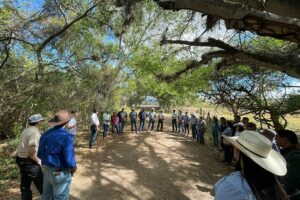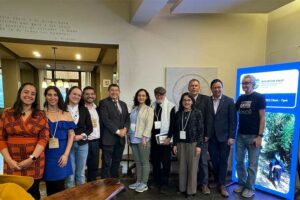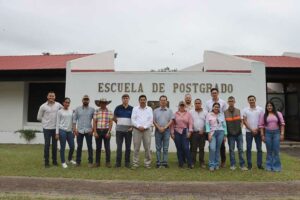Coffee producers learn results of Costa Rican research in field day
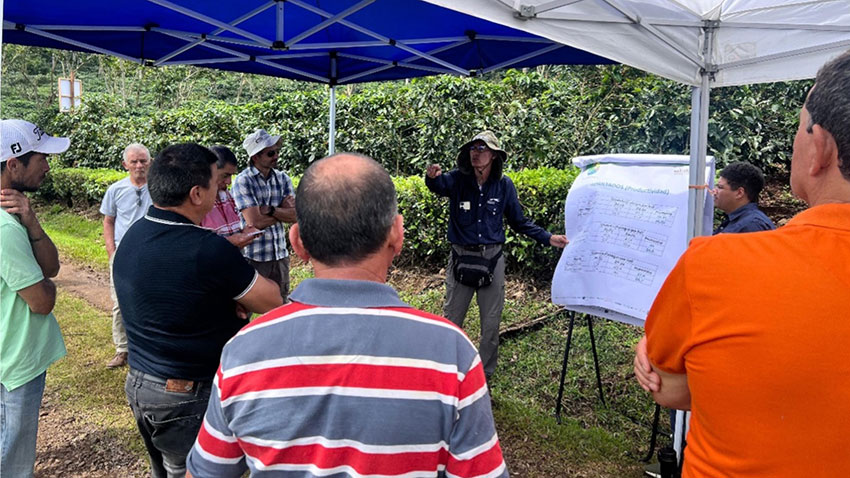
- CATIE and partners of the TRANSFORMA-INNOVA Program held a successful field day for coffee growers of the Occidente region.
- This activity allowed sharing the progress of the KoLFACI Coffee Project for Costa Rica.
More than 55 coffee growers from the Valle Occidental of Costa Rica gathered at Finca Santa Anita, in Naranjo, Palmares, where a field day on adaptive capacity and mitigation in coffee farms was organized by the Tropical Agricultural Research and Higher Education Center (CATIE), where they also exchanged information and knowledge on innovative practices in coffee production in the country.
The activity was developed within the framework of the KoLFACI project and the TRANSFORMA-INNOVA program (in collaboration with MAG, MINAE and GIZ), ICAFE and the cooperatives CoopeIndia RL, CoopePalmares RL, Café de Altura and Agrícola El Cántaro-Beneficio Santa Anita.
During the morning, participants learned about research results and innovative practices such as coffee pruning systems -focused on plant regeneration and pest control to improve productivity-, agroforestry systems -that integrate trees and coffee crops to conserve natural resources, increase biodiversity and capture carbon- and drip irrigation systems -designed to guarantee the efficient use of water, a critical resource in the face of climate change-.
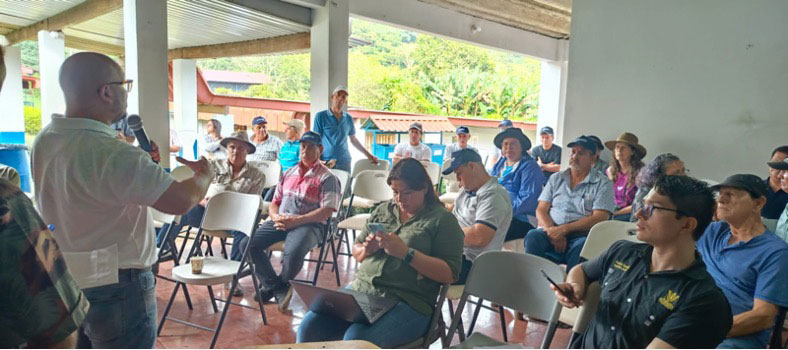
Dr. Elías de Melo, CATIE coffee specialist, together with students from the Master's program in Agroforestry and Sustainable Agriculture, presented the findings of surveys on the impacts of climate change conducted with members of the participating cooperatives. This enriching exchange encourages the search for practical and customized solutions to the sector's challenges. In addition, Banco Popular de Palmares provided information on financial instruments designed to strengthen productivity at the farm level.
Projection of the TRANSFORMA-INNOVA program
Within the framework of the TRANSFORMA-INNOVA Program strategy and in collaboration with cooperatives and allied entities, this type of activity seeks to promote the adoption of good agricultural practices that allow coffee growers to increase their adaptive capacity and contribute to the mitigation of climate change.
This approach is based on prioritizing sustainable and regenerative practices that optimize available resources, strengthen the resilience of farms and reduce the environmental impacts of coffee production. Next year the plan is to extend the field days to other regions of the country.
The TRANSFORMA-INNOVA Program is coordinated by the Ministry of Agriculture and Livestock (MAG), co-financed by the European Union and the German Federal Ministries of Economics and Climate Protection (BMWK) and Environment, Nature Conservation and Consumer Protection (BMUV), through the International Climate Initiative - IKI, and implemented by the German Development Cooperation GIZ in conjunction with CATIE, Conservation International (CI), Costa Rica United States Foundation for Cooperation (CRUSA), Environmental Bank Foundation (FUNBAM) and the United Nations Development Program (UNDP).
Outstanding participation of the KoLFACI Coffee Project
The field day also provided an opportunity to share the progress of the KoLFACI Coffee Project for Costa Rica, an initiative that evaluates pruning technologies and identifies promising coffee materials to address climate change in Latin America. With the support of the Korean Cooperation for Food and Agriculture (KoLFACI) and the Korea Rural Development Administration (RDA), the project has generated positive impacts on local producers.
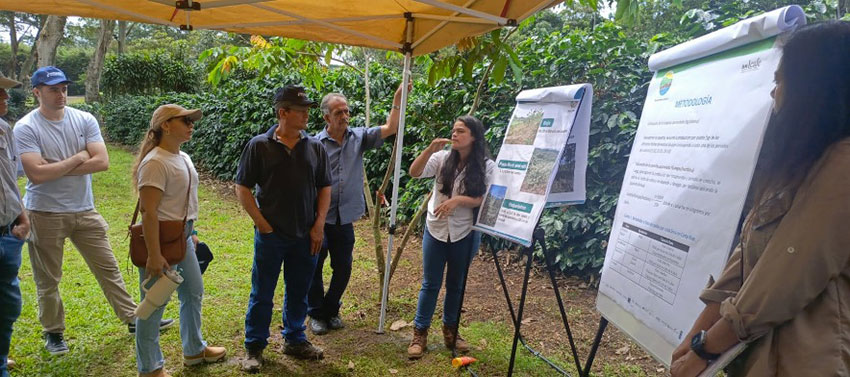
Eng. Diana Espinoza (ICAFE) and M.Sc. Chelsia Moraes (CATIE) presented preliminary results on pruning techniques and varieties in two of the four farms under study. Among the outstanding achievements were:
- Knowledge transfer:Growers now apply various pruning systems, some of which have been adopted by neighbors, broadening the impact of the project.
- Production improvements: Implementing pruning by cycle optimizes crop health and facilitates tasks such as fertilization, reducing operational complexity.
- Customized adaptation: The specific conditions of each farm - topography, altitude, climate and varieties, for example - underscore the importance of an adaptive rather than a generalized approach.
“Pruning is fundamental to maintain constant harvests and reduce the bienniality of the crop, renewing the old tissue each year,” explained Chelsia Moraes, CATIE researcher.
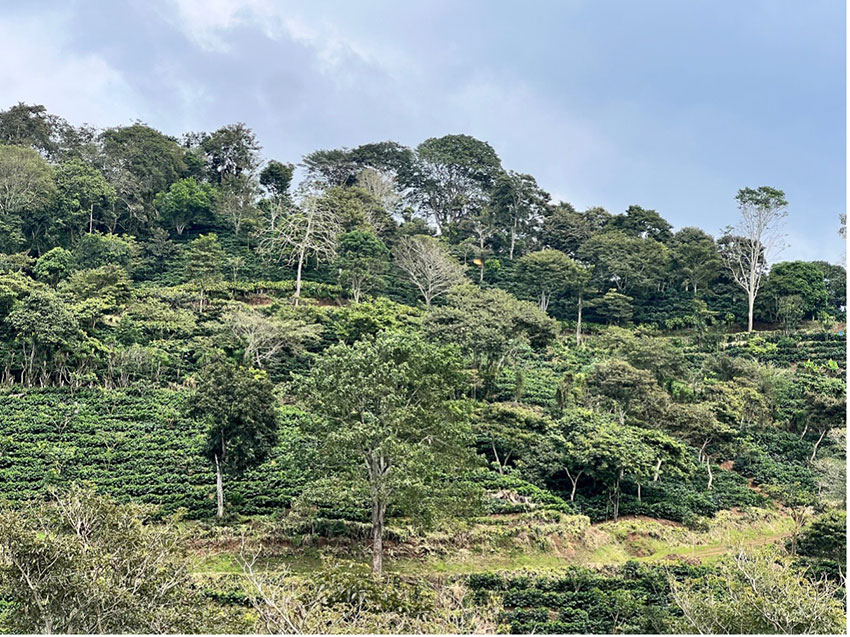
More information:
Elias de Melo Virginio Filho
Coordinator for CATIE at NAMA Café
TRANSFORMA-INNOVA Program
eliasdem@catie.ac.cr
Chelsia Moraes
Researcher
CATIE
Written by:
Esteban Rodríguez Zamora
Communicator
Communications and Marketing Office
CATIE
Alejandro Portilla Navarro
Communicator
Communications and Marketing Office
CATIE
alejandro.portilla@catie.ac.cr

